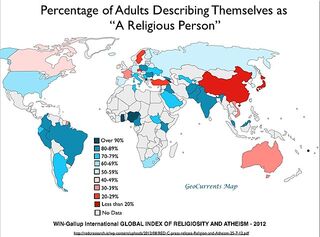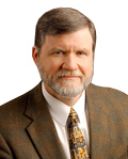Religion
Will There Be a Resurgence of Religiosity in America?
The current series of national and global crises will have an impact.
Posted July 6, 2020 Reviewed by Lybi Ma

American Religious Exceptionalism?
Although the rising percentage of Americans, who answer “none” when surveyed about their religious affiliations, has attracted considerable attention over the last few years, the fact remains that among the peoples of so-called first world countries, Americans remain far more likely to affirm religious beliefs. That comparison with the populations of other developed nations is not by chance. Scholars have long appealed to the secularization hypothesis to explain the steady decline of religiosity in all affluent, comparatively open societies around the world, except in the United States.
The secularization hypothesis holds that if people have achieved basic material security, live in a society with relatively low-income inequality, and regard their government institutions as representative, reliable, effective, and just, then those same trustworthy secular institutions tend collectively to displace the gods. In such secularized societies governments, rather than the gods, assume the role of monitoring and policing behavior in a politically acceptable way that fosters social cooperation. In such secularized societies citizens’ religiosity declines substantially over time. Many have proposed that the increasing number of “none” responses in those surveys of Americans over the last decade suggests that the secularizing process has finally commenced even in the U.S.
Over Before It Started?
That trend may, however, be short-lived. Empirical studies suggest that even in highly secularized societies calamitous events that undermine people’s safety and security or their trust and reliance on government institutions seem not only to halt the process of secularization but even to reverse it. Under such untoward circumstances, people become more likely to acknowledge religious commitments.
That trend may be reversed then because Americans are currently confronted by an unprecedented confluence of natural and social crises. The current situation is like facing the most consequential problems of 1918 (a pandemic, note, far more people died from the flu than died in World War I), 1929 (massive unemployment and an economy teetering on the brink of depression), and 1968 (widespread protest and social unrest) all at once. And that sum includes neither the threats to American democracy that many see arising from multiple quarters nor the impact of climate change, which is, arguably, the direst crisis of them all. (The temperature in Verkhoyansk in the Russian Arctic on June 20, the first day of summer, was in excess of 100 degrees Fahrenheit.) Nor does it attend to the routine seasonal disasters like hurricanes, tornadoes, and floods, which will inevitably occur in the coming months.
Each of these crises threatens to jeopardize whatever stability that may be attached in America to the various material, social, and political conditions on which the secularization hypothesis focuses. Without a vaccine or a wonder drug, COVID-19 threatens the health of every American and the lives of especially vulnerable Americans, who number in the many tens of millions.
At least in the near term, the shock both to workers who are now unemployed and to the economy in general that this pandemic has wrought is unparalleled in American history. Those who argue that neither employment nor the overall economy can be improved for the long haul until COVID-19 is effectively managed are, in effect, suggesting that talk of another depression is not outlandish.
Simultaneously, America is in the midst of yet another painfully poignant reckoning with the endemic racism and associated injustices that have plagued the lives of African Americans generally and the lives of African American males at the hands of the police, in particular. The resulting destabilization of confidence in the fairness of law enforcement for many Americans, regardless of their racial identities, has only been compounded by multiple incidents in which peaceful protests have been met with disproportionate force.
The point is that every one of these crises tends to undo the sorts of arrangements on which the process of secularization depends. As noted, empirical research suggests that the sudden disabling of such arrangements leads to a resurgence of religiosity among the population.
The current circumstances in the U.S. constitute something like a natural experiment for double-checking this pattern. The prediction would be that levels of religiosity are likely to rise among Americans over the next year or so.
References
Talmont-Kaminski, K. (2013). Religion as Magical Ideology: How the Supernatural Reflects Rationality. Durham: Acumen


